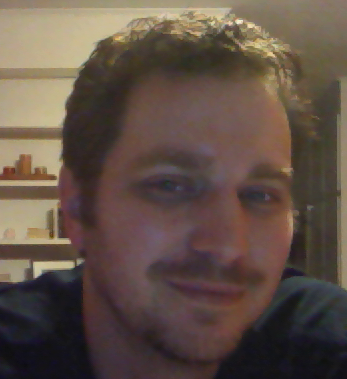It’s very difficult to accurately explain the experience of growing up in an independent fundamentalist Christian environment. There are so many times when I’ve started to describe it to my partner or a friend and ended up saying, with some exasperation, “Well, you’d have to have lived it to really understand.” I have read many books, blogs, seen several movies—both fictional and documentary—that speak from the perspective of growing up within some form of Christianity. While many of them have been very good and had some relevance to my experience, nothing has ever spoken to the particulars of the fundamentalist upbringing… until now. Aaron Hartzler’s Rapture Practice is easily one of the best books I’ve ever read. For the first time in my reading experience, someone has captured growing up in an independent fundamentalist household, with all its foibles, quirks, eccentricities, and baggage. Aaron is gay, but this book tells a story that will speak to all of us that were raised in fundamentalism.
Aaron’s coming of age story resonates with me like nothing else has so far. This debut memoir covers his elementary through high-school years. For many of the chapters, I felt as though I was reading about my own childhood: the good, the quirky, and (now that I’m far enough removed so that I can see it) the controlling manipulation to be the person my parents wanted and needed me to be. This is a wonderfully written memoir. My experience as the reader melded with that of the narrator. On almost every page, I had an “Oh wow, me too!” reaction, and therefore I felt very strongly the emotional, spiritual, and mental roller coasters that Aaron recounts: the highs and lows, the frustration of questions unanswered, the new investigations of sex, music, friends, and alcohol and feeling the thrill of discovery and fear of getting found out, the joys of pleasing parents, the crushing weight of their disappointment. Aaron writes as objectively as possible, without anger or malice, simply telling the story from his perspective. He doesn’t rake his very conservative parents and friends or his churches and schools over the coals with the benefits of hindsight, instead letting their actions and words speak for themselves, being very honest about his own feelings, questions, and struggles. We get to go on the journey with him: from enthusiastic young boy totally immersed in his Christian faith and all the standards and way of life that fundamentalists are known for; through the beginnings of the questions about the whys and why-nots about music, relationships, dress, authority, and other outward trappings of fundamentalism; to the deeper questions about faith and Christianity itself.
While Aaron only begins to understand his sexual orientation by the end of the book, the signs are everywhere from the very beginning, many of the same indicators that, looking back, I can see in my own life well before my sexual awakening and knowledge of my attractions. For example, when talking about the He-Man action figures he wasn’t allowed to play with, he remembers noticing details about their physiology that most straight guys wouldn’t have paid attention to, certainly not as a child. Additionally, there are a lot of triggers in this story, which brought back so many memories that had been buried for years: good, bad, harmless, quirky, details from the fundamentalist culture, and also “oh wow, NOW I see exactly how manipulative they were being.” Here’s one of the good ones: Aaron recalls going to his grandparent’s home and enjoying two things not allowed at his own house–the fun, sugary cereals and also TV. Reading this brought a wave of nostalgia, remembering the same joys of going to my own grandparent’s home and enjoying the same “forbidden” things. But there were darker triggers, too, like the times his father would accuse Aaron of rebellion and express his grief and disappointment, often over things that shouldn’t have been issues in the first place. I experienced the frustration, the sinking in my stomach all over again. It was like hearing my own father’s voice.
I hope there will be a sequel to this book. I’m guessing that because of the size of the book, graduating from high school was a logical stopping place for part one of the journey. Aaron has become a friend of mine, and I’m eager to continue following his evolution from the end of Rapture Practice to the out, happy man he is now. This is a book that I wholeheartedly recommend, both as a memoir of our lives in the Christian fundamentalist culture and as a way to explain our lives to those who didn’t grow up in within that culture.
*The opinions expressed in this post are the author’s alone. BJUnity embraces all of our constituents — of any faith or no faith — with equal love and compassion. We affirm everyone’s dignity and autonomy, we respect all viewpoints and we celebrate and support the lives of all those of the LGBT+ and straight affirming community who have been affected by Christian fundamentalism. You are not alone. You are loved.

